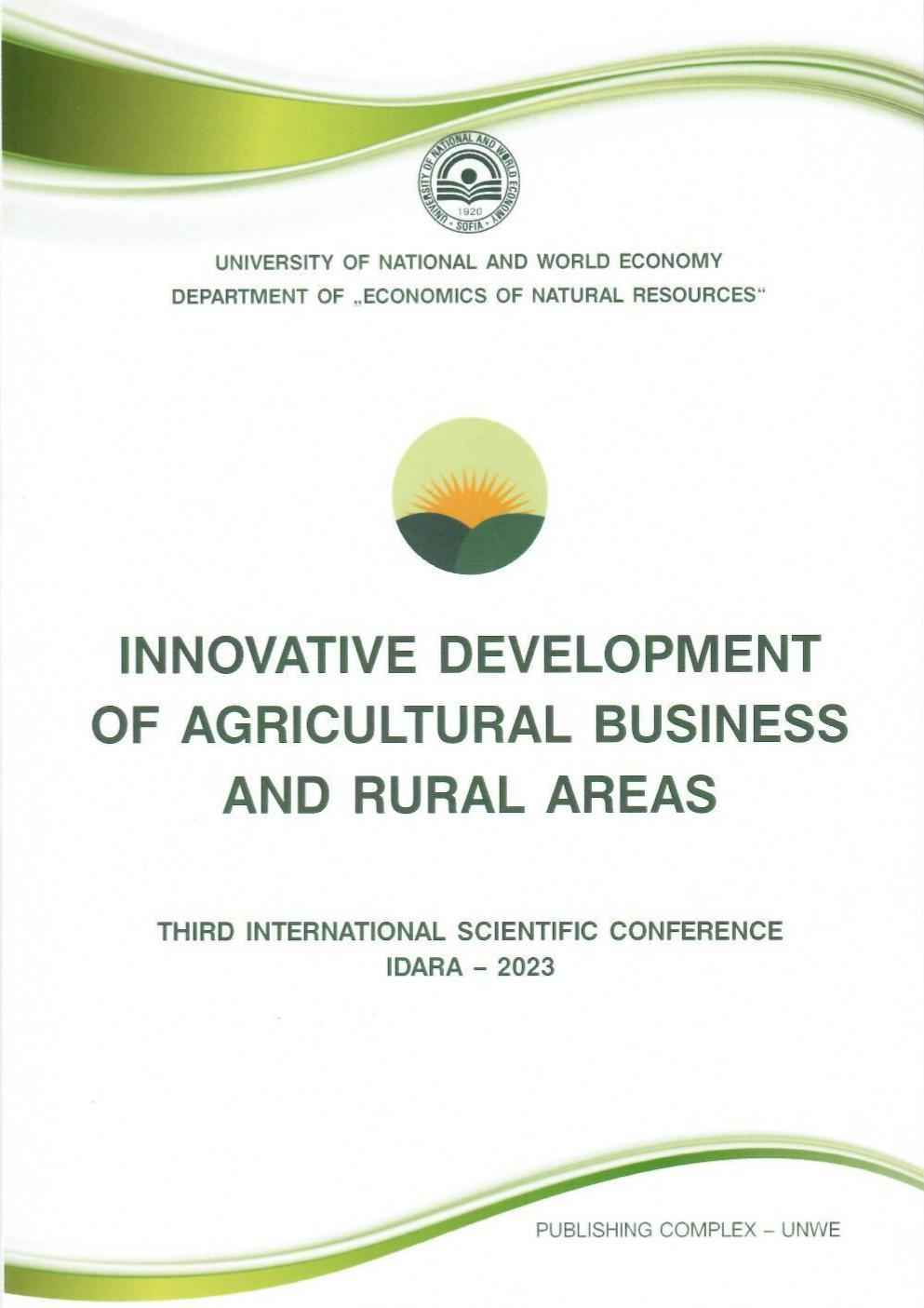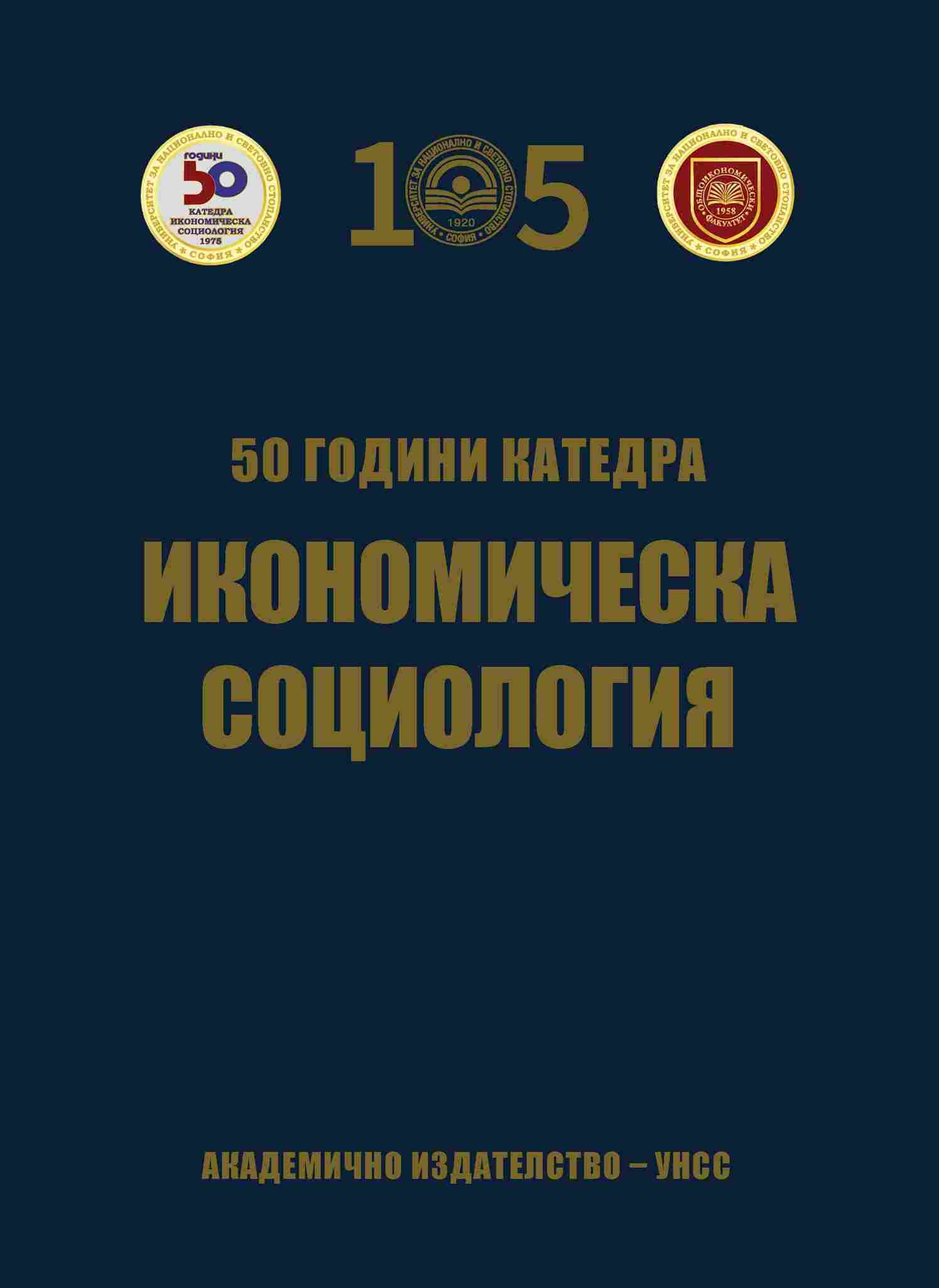
Cluster Analysis of Districts in Bulgaria According to the Development of the Agrarian Sector
The purpose of the study is to classify the districts in Bulgaria according to some indicators characterizing the development of the agrarian sector. A cluster analysis (K-means clustering) was performed using the statistical software R and the packages „factoextra“ and „cluster“. The official statistical information of the NSI for 2021 was used for the following indicators: gross value added from Agriculture, Forestry and Fishery (GVA); employees under labour contract in Agriculture, Forestry and Fishery; average annual wages and salaries of the employees under labour contract in Agriculture, Forestry and Fishery. It was established that according to the development of the agrarian sector in 2021, the districts in Bulgaria can be classified into 4 clusters. The central point of the cluster with the most favorable values of the indicators in terms of agriculture has the following characteristics: GVA from agriculture – BGN 299 million; persons employed in agriculture – 3644 persons; average gross salary – BGN 15506. This cluster includes the districts Veliko Tarnovo, Ruse, Varna and Dobrich. The central point of the cluster, which ranks second in terms of realized development in the sector in 2021, can be described as follows: GVA – 278 million BGN; persons employed in the agricultural sector – 3857 persons; average annual gross salary – BGN 12032. The cluster unites the following districts: Pleven, Burgas, Stara Zagora, Pazardzhik and Plovdiv. The centroid of the cluster, ranked third in terms of development of the agrarian sector, is characterized by the following values of the considered indicators: GVA from agriculture – BGN 184 million; employed persons in the sector – 1789 persons; average annual salary – BGN 14206. This cluster includes the districts: Montana, Gabrovo, Razgrad, Targovishte, Shumen, Yambol, Sofia – grad and Smolyan. The central point of the cluster, ranked last in terms of realized development in the agrarian sector, has the following characteristics: GVA – BGN 183 million; employed persons – 1595 persons; average gross salary (annual) – BGN 11795. It includes the districts: Vidin, Vratsa, Lovech, Silistra, Sliven, Blagoevgrad, Kyustendil, Pernik, Sofia, Kardzhali and Haskovo. This is the cluster with the most unfavorable development of the agrarian sector during the considered period. Clusters unite districts, some of which are significantly distant from the central point of the cluster to which they belong. The explained variation in the clusters is 73,6%, which is relatively acceptable, but at the same time it also shows that 26,4% of the variation cannot be explained by the presented distribution of the districts by clusters. This also explains the relatively large distance between some districts and the corresponding centroid: these districts show significant differences from the central point, i.e. their classification cannot be considered successful. Such districts are Pernik, Plovdiv, Dobrich, Gabrovo, Smolyan and Shumen. In general, the first and third clusters appear to be the most homogeneous, and the second and fourth are the most heterogeneous.
More...




